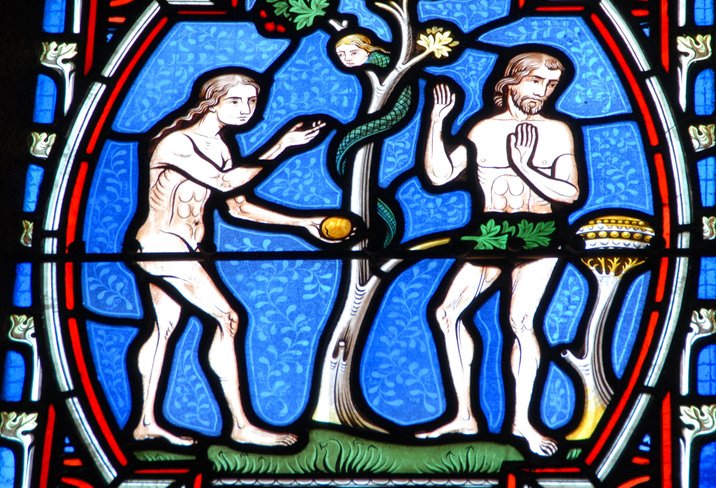How Religious Temperance Influences Dietary Advice
The Temperance Crusade emerged in the early 1800s, intending to restrict alcohol consumption in the United States. It was a convergence of various concerns, including societal issues, religious beliefs, and health considerations, which resonated with many middle-class reformers. Women, in particular, were strongly attracted to the Temperance movement. In 1831, there existed 24 organizations solely for women with a focus on temperance. 1
Ellen G. White
Ellen Gould Harmon White (Ellen G. White) was born in 1827 and was one of the founders of the Seventh-day Adventist Church, which is considered to be temperance-based. She claims to have had religious visions starting when she was seventeen. After she married, she and her husband moved to Battle Creek, Michigan, and met with other like-minded worshipers. In 1860, they formally adopted the name Seventh-day Adventists.
The Garden of Eden Diet
In 1863, she had another vision that we were supposed to eat the diet originally chosen by our creator, which she called the Garden of Eden Diet. It is a vegetarian diet taken from the bible because in Genesis 1:29-31, when Adam and Eve were in the Garden, God said, Behold, I have given you every herb bearing seed, which is upon the face of all the earth, and every tree, in the which is the fruit of a tree yielding seed; to you, it shall be for meat.
And to every beast of the earth, and to every fowl of the air, and to everything that creepeth upon the earth, wherein there is life, I have given every green herb for meat: and it was so. Many Adventists believe these verses are a commandment to not eat meat.
However, a few chapters later, in Genesis 9:3, God says, Every moving thing that liveth shall be meat for you; even as the green herb have I given you all things. However, God had already cast Adam and Eve from the garden, and God's statement regarding eating animals was made to Noah. Seventh-day Adventists' decision to eat only vegetables ignores God's later commandments. I am sure they have good reasons to do so, and I am not condemning them for their beliefs.
John Harvey Kellogg
The consumption of meat was deemed morally corruptive, leading to impure sexual thoughts and actions. From age twelve to sixteen, John Harvey Kellogg became immersed in the Seventh-day Adventist temperance movement and was in charge of typesetting the books and pamphlets they released. He became a strict follower and was very active in the church's doings.
Later on, Kellogg opened a famous sanitarium in Battle Creek, where he endorsed a vegetarian diet. Additionally, meat was considered a poor dietary choice, and the low-fat-high-carb diet movement was born. He created numerous grain-based foods, making the Kellogg's brand world famous and highly profitable.
Lena Cooper
The diet continued to take hold through stringent efforts by the Seventh-day Adventists. Along with the vast wealth of the Kellogg's, they have largely succeeded in their efforts. Eventually, Lenna Cooper became a dietician involved with the religion, Kellogg, and the sanitarium. She trained over five hundred dieticians in the sanitarium's School of Home Economics. In 1917, she established the American Dietetic Association.
Additionally, she served on the staff under the Surgeon General, where she created the Department of Dietetics at the NIH. To this day, The Academy of Nutrition and Dietetics awards the Lenna Frances Cooper Lecture Award. Numerous other people from the Kellogg/Adventist movement became worldwide influencers of the vegetarian diet. The details are outlined in The Great Plant-based Con by Jayne Buxton.
Kathleen Zolber
Another Seventh-day Adventist, Kathleen Zolber, became the president of the American Dietetics Association 2, and in 1988, a panel of eight dieticians issued a stance accepting the vegetarian diet. 5 of the eight panelists were Seventh-day Adventists, proving nothing but illustrating the number of Seventh-day Adventists involved at the highest levels in promoting vegetarianism, as stated in the following quotes from their mission statement. 3
The Vegetarian Mission
If there is any doubt about their mission, their 2018 paper entitled The Global Influence of Seventh-day Adventist Church on Diet says it all. Here are two quotes:
"For millennia, numerous faith traditions have encouraged adherents to limit eating meat, even if temporarily. The Seventh-day Adventist Church, which began in mid-nineteenth-century America explicitly linked theology and food to encourage a vegetarian lifestyle among present and potential believers. The church also influenced the diet of non-members around the world through its ambitious organizational structure dedicated to education, health care, and the development and mass production of plant-based foods, such as meat analogues, breakfast cereals, and soy milk. Lastly, results of research conducted among vegetarian Adventists and at universities affiliated with the church have greatly contributed to the scientific understanding of the health effects of vegetarian diets and to dietary changes of the society at large."
"In this review, we will show the important role of diet within the theology and practice of Adventism, how the organizational and institutional structure of the church advances the Adventist perspective on diet—particularly in the marketplace, and how Adventists have used research and professional activities to advance vegetarianism in the broader society. Although this article focuses on efforts within the United States, there are examples of efforts across the worldwide church." 4
Hidden Conflicts of Interest
I am not criticizing the Seventh-day Adventists for practicing their religion. But as they have stated, they willfully infiltrated dietary institutions with the aim of influencing non-believers, believing it would make them morally better people. Furthermore, in research publications, the authors state any conflict of interest. For instance, if a paper is reporting that sugar is not bad for our health, but the funding came from Coca-Cola, there is a declaration so the reader can factor in potential bias. There is no such declaration when the authors are religiously obligated to espouse vegetarianism. One would assume that they only see the good in their diet or have design studies that show only benefits and no harm. The reader should be aware of potential conflicts of interest.
Conclusion
Since its inception, this organization has set the standards for the very first dietetics association, which has now been replicated globally. They have authored several textbooks on the subject over the years, in addition to nursing and medical literature. Furthermore, they possess a significant number of hospitals and more than 60 publishing houses, as well as over 400 TV stations and a few hundred radio stations. They rank second in terms of education, after the Catholic Church. They also own 24 food industries and were responsible for launching the soy industry. I do not begrudge Adventists for their power and authority, but I urge you to be aware of who is behind the messages about the virtues of veganism, whether it is a teacher, preacher, journalist, or scientist.







